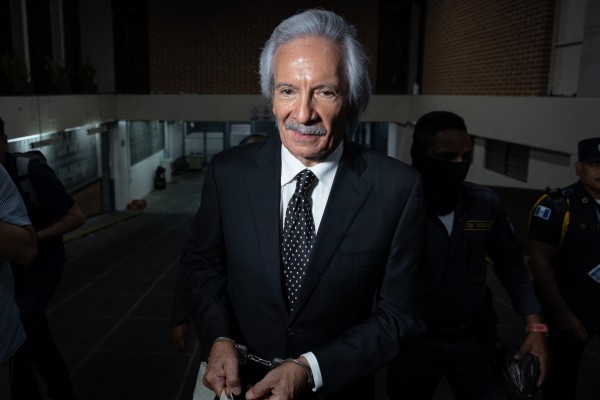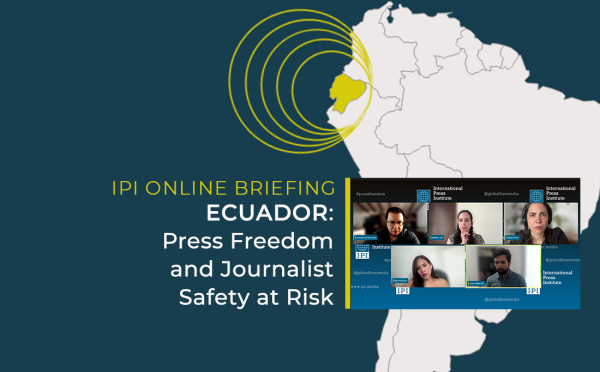At least 15 journalists have reportedly been physically attacked, injured, or detained over the past two weeks while covering anti-government protests in Brazil that grew out of anger over fare increases on public transportation.
The International Press Institute (IPI) today called on Brazilian security forces to guarantee the safety of reporters covering the protests and to refrain from any action that could interfere with the flow of information to the public. IPI also urges Brazilian authorities to investigate reports of the of force against journalists by both police and protesters.
The demonstrations began earlier this month with a June 6 protest in Sao Paulo against a 20-cent (€0.07) increase in bus and subway fares. The demonstrations grew quickly and spread to other cities, including Rio de Janeiro, the federal capital of Brasilia, and others. Reports indicated that more than 250,000 took to the streets across the country on Sunday. Twenty-seven cities around the world have also staged protests in solidarity.
As they spread, the demonstrations began to take on a more general tone, with protestors expressing frustration at the country’s political corruption and a lack of public services, especially in light of the 27.1 billion Reais (more than €7 billion) reportedly required for stadium and transportation infrastructure updates for the 2014 FIFA World Cup.
While the demonstrations began peacefully, they soon grew violent, as protestors set fires to vehicles, threw stones, raided stores, and traded blows with police forces, which, according to reports, violently battled protestors.
The biggest crackdown occurred on Thursday, June 13 in Sao Paulo when police fired rubber bullets and tear gas in clashes that injured more than 100 people, including 15 journalists, some of whom claimed that they were deliberately targeted.
Photographer Sérgio Andrade da Silva from Futura Press agency was hit in the eye by a rubber bullet and according to the Brazilian Association of Investigative Journalists, doctors gave him a less than five in 100 chance of recovering sight in his eye.
Newspaper reporter Giuliana Vallone from Folha de Sao Paulo, Brazil’s most widely circulated daily, was also hit in the eye by a rubber bullet.
“I wasn’t attacking anyone, I wasn’t cursing at anyone. I was doing my job”, Vallone told Folha from her hospital bed in Sao Paulo. “I saw him aiming at me, but I never thought he would fire, because I had (policemen) aiming at me before that night. You’ll never think that an armed guy in uniform will ever shoot you in the face”, she added.
Folha said that seven of its staff members (including Vallone) were attacked by policemen at the June 13 protests.
More recently, several journalists have suffered violence at the hands of other Brazilian security forces.
Vladimir Platonow of Agência Brasil, along with several demonstrators, were beaten with batons by security guards at the train station when they tried to escape a charge by a special unit of the Military Police in Niterói, on the evening of June 19.
In Rio de Janeiro, Pedro Vedova, a journalist with GloboNews, was struck in head by a rubber bullet fired by a police officer outside city hall on June 20.
According to local and international reports, military police have been mostly responsible for the attacks on journalists, which have been accompanied by arrests in some cases. In some cases, however, demonstrators have directed violence at journalists and news media covering the protests.
Local reports indicated that around 100 protesters in Sao Paulo attempted to expel Caco Barcellos of TV Globo from a march on June 18, and accused him of being a government “manipulator.”
A group of protestors also threw stones at a TV Record television truck near Sao Paulo’s city hall and set it on fire. In addition, TV Bandeirantes journalist, Rita Lisauskas was assaulted by demonstrators, who threw vinegar in her face while she was reporting from the protests. The protesters reportedly chanted slogans criticizing Brazil’s mainstream media.
Despite appeals by Brazilian and international organizations that defend press freedom, police and protestors reportedly continue to target journalists.
“Protesters in Brazil, as well as the country’s security forces, must respect the rights of journalists to cover these demonstrations,” IPI Press Freedom Manager Barbara Trionfi said. “Brazilian journalists must be protected from violence in order to effectively inform the public,” she added.
With six journalists killed already this year and 11 in the past two years according to IPI’s Death Watch, Brazil has become one of the most dangerous countries in the world for journalists. Just recently, José Roberto Ornelas de Lemos, a prominent newspaper executive, was shot 44 times at in Nova Iguaçu, Rio de Janeiro State.


